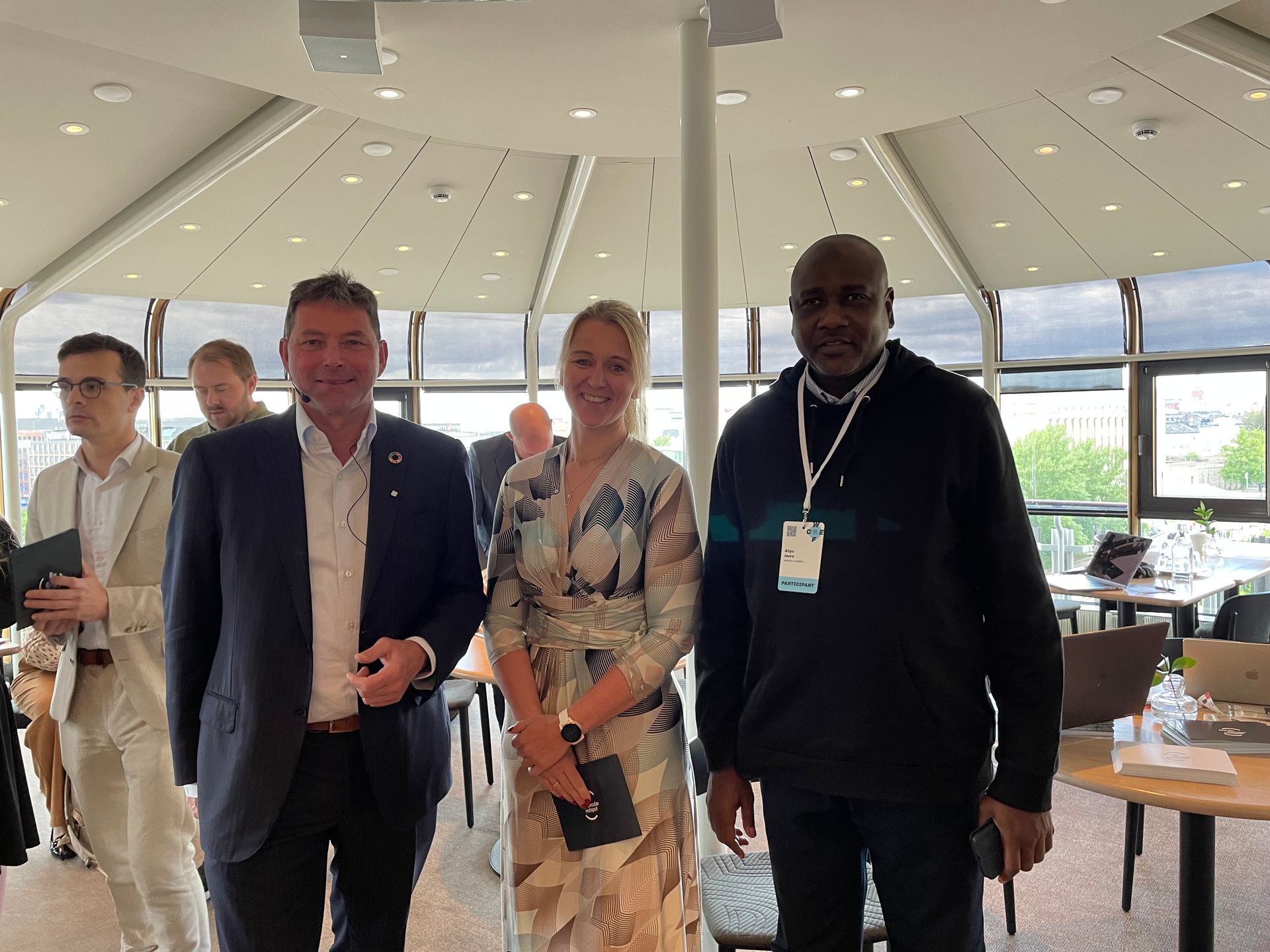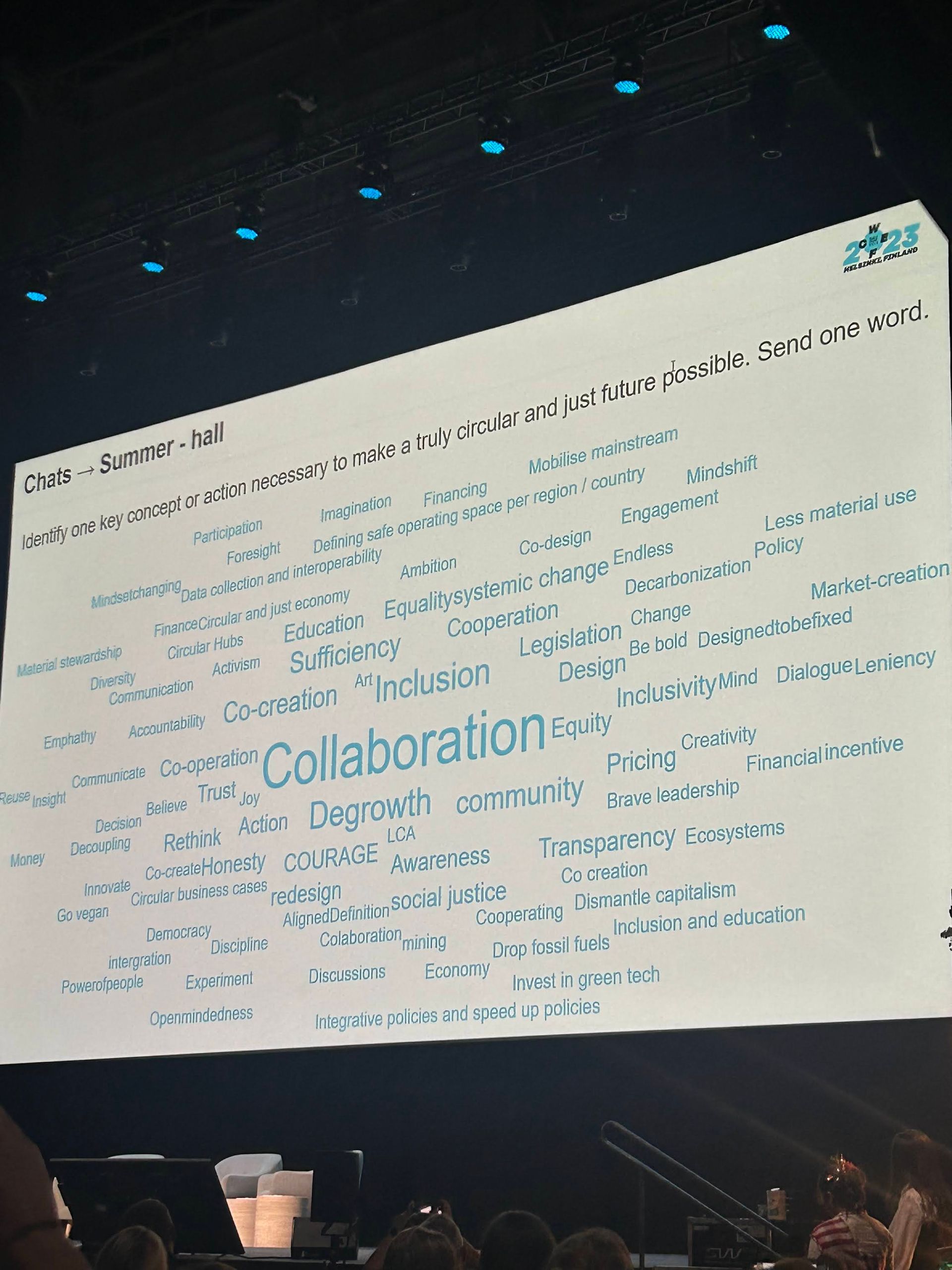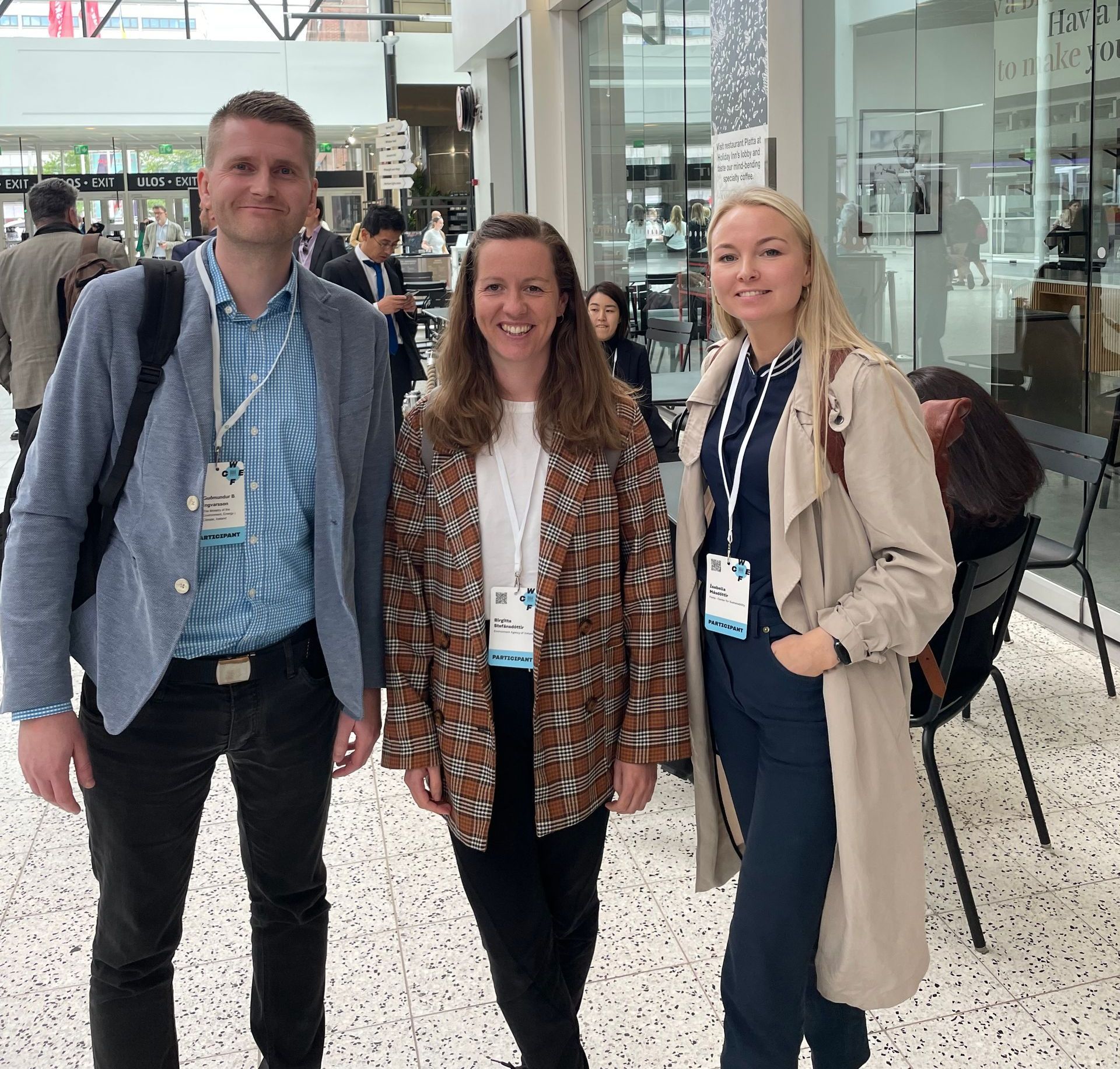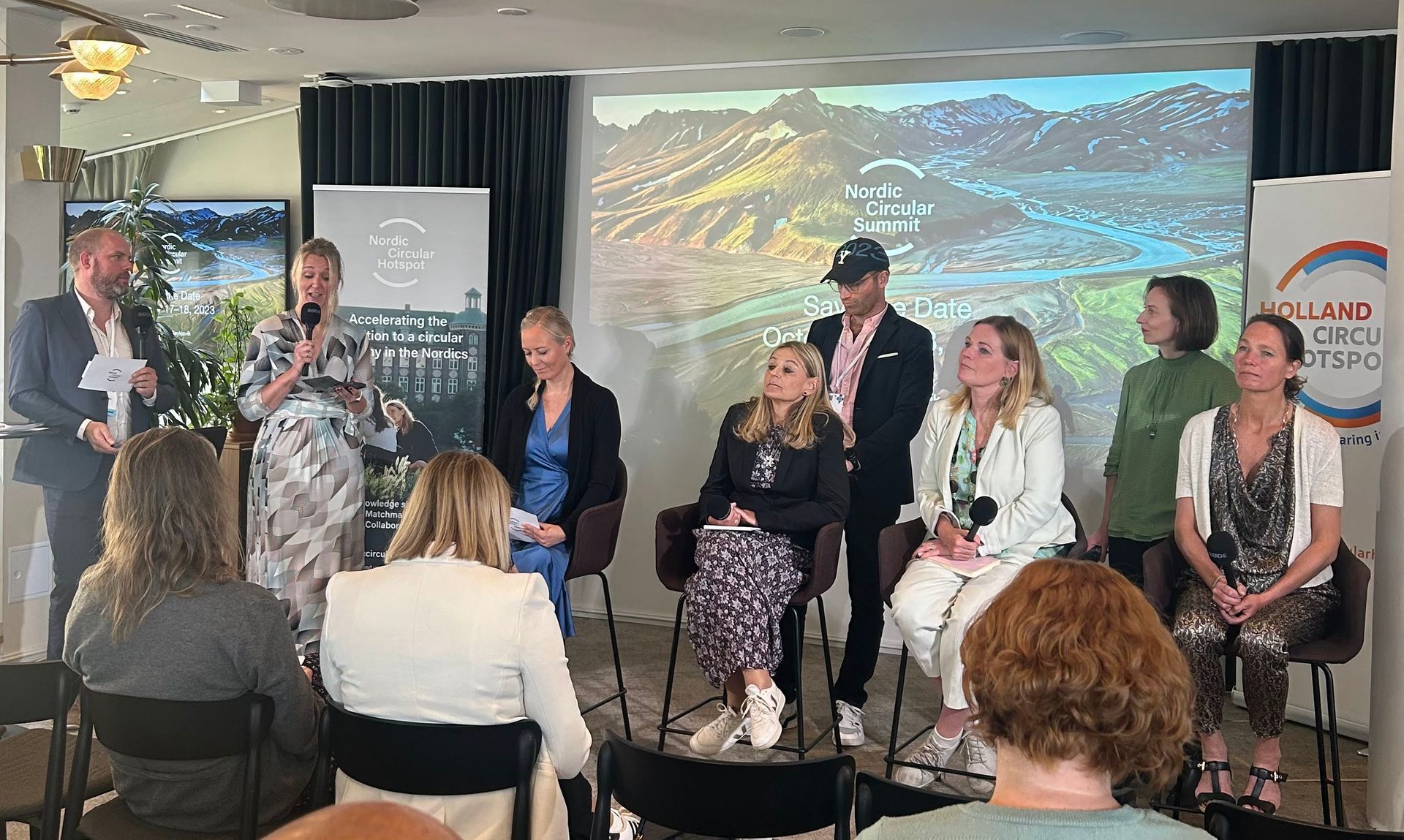Hello! This is the English version of our site, currently under construction. Please excuse any errors or glitches as we work on making things better.
06.05.23
Cycle - the tool we need?
We attended the world's largest circular conference held in Helsinki last week, the World Circular Economy Forum WCEF (WCEF2023) and held a side event in collaboration with the Nordic Circular Hotspot. The circular economy is one of Festa's most important projects and has been on the company's agenda since 2019.
We look at Festa's subject from the three pillars of sustainability: people, earth and prosperity, and here is a summary of the conference based on that.
Jörð
- The bottom line is this: We will not achieve our climate goals unless we move to a circular economy. The circular economy is a solution to many of the environmental and economic problems we face today. The linear economy is drying up our resources, so it is not enough to just add cycles to the business model, we need to replace the linear ones. Today, more than 90% of biodiversity loss is due to the way we use natural resources. We need to change the way we produce, use and consume our products, and the circular economy is a tool for that.
Prosperity
- It is clear that in many places governments, local authorities, large and small companies are beginning to take the circular economy seriously. We have stopped talking about why we need a circular economy. Now it's just a matter of how we move to a cycle at full capacity. A cycle increases efficiency and savings. The opportunities are underutilized. Companies are therefore not only moving closer to circularity for environmental reasons, but also because important raw materials are becoming more expensive due to their scarcity. We are still at the point where we are taking the earth's resources, making products from them that have no afterlife. In a circular economy, we consider the product's process from beginning to end and keep products and resources in circulation. There we decouple economic growth and consumption. These cycle-based business models exist and they work, but now is the time to further invest in and develop them. We know of examples where changing production to circularity in companies involved increased efficiency, even though originally circularity was not the actual goal. The new law on disclosure will make more detailed requirements regarding the impact on nature and the cycle in the coming years, but it is clear that the legislator needs to work faster. Then, capital must continue to be launched into circular solutions.
Fólk
- The circular economy is being discussed globally. WCEF2023 brought together policymakers, CEOs, academics and experts from all over the world, and lessons can be learned from circular business models that have developed, for example, in countries in Africa. In recent years, parties from over 40 countries in Africa have come together and formed a collaborative forum on the circular economy. We need to think globally - but each country needs its own customized cycle solutions. The social aspect of cycling must not be overlooked. Just transition is key here. When individual industries are in a process of transformation, the voices of those who create the value must be allowed to be heard and taken into account. This was one of the things that was discussed in the context of agriculture, for example. "Nothing about us, without us" is a phrase that applies here but it was also used in the context of young people, who had a powerful presence at an event where once again we were reminded of the importance of promising young people a seat at the table, in preparation and decision making. #JustTransitionWe need more cycle specialists. Knowledge of cycles is extremely valuable in the developments that are taking place, in most sectors of society: in companies, institutions and in the political arena. If WCEF23 participants had to choose one word to characterize the conference and the circular economy as a whole, it would be collaboration! Let's break down silos, think holistically and globally. A cycle is the way to a more sustainable society, and the way to a cycle is cooperation.








